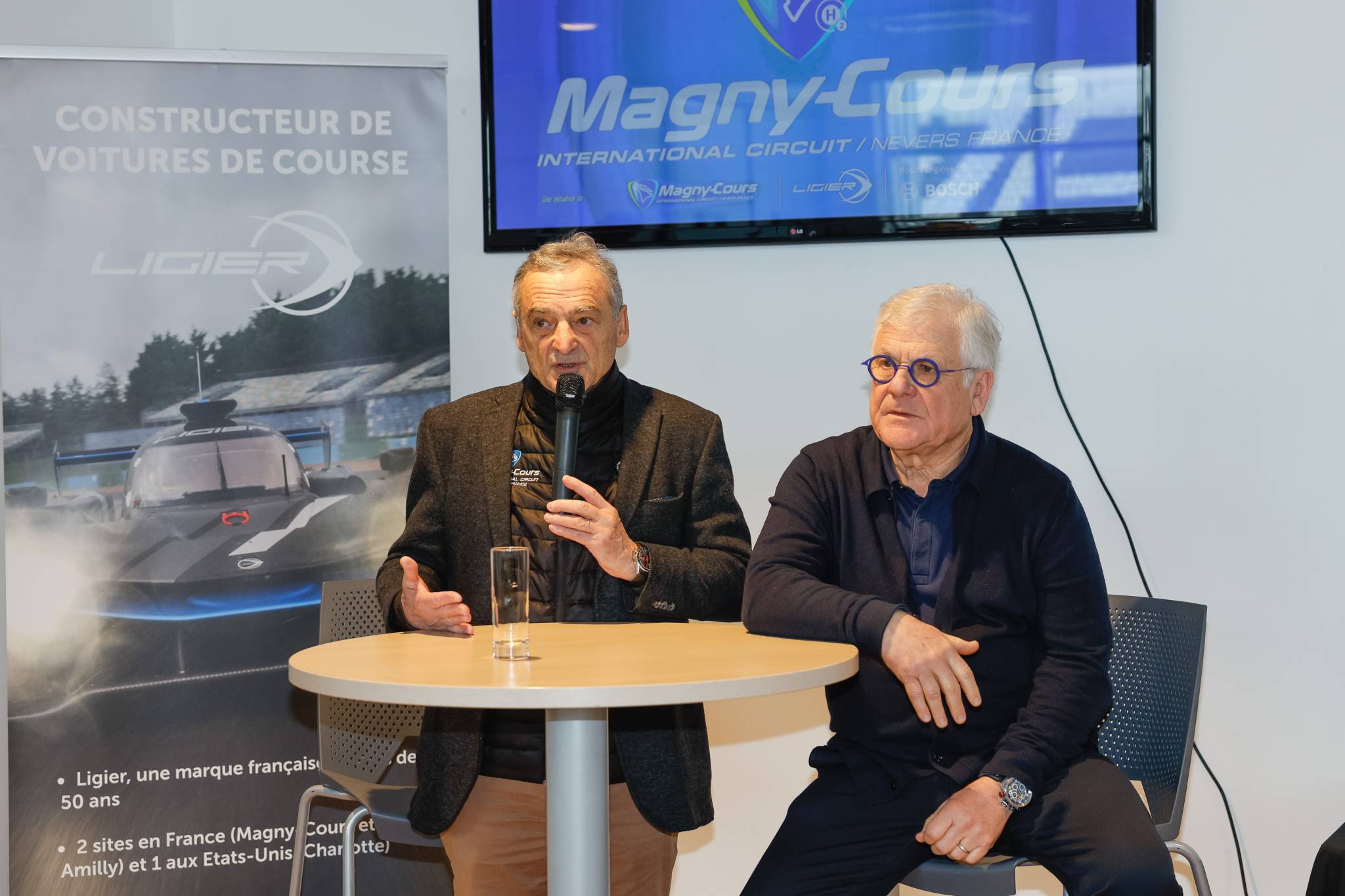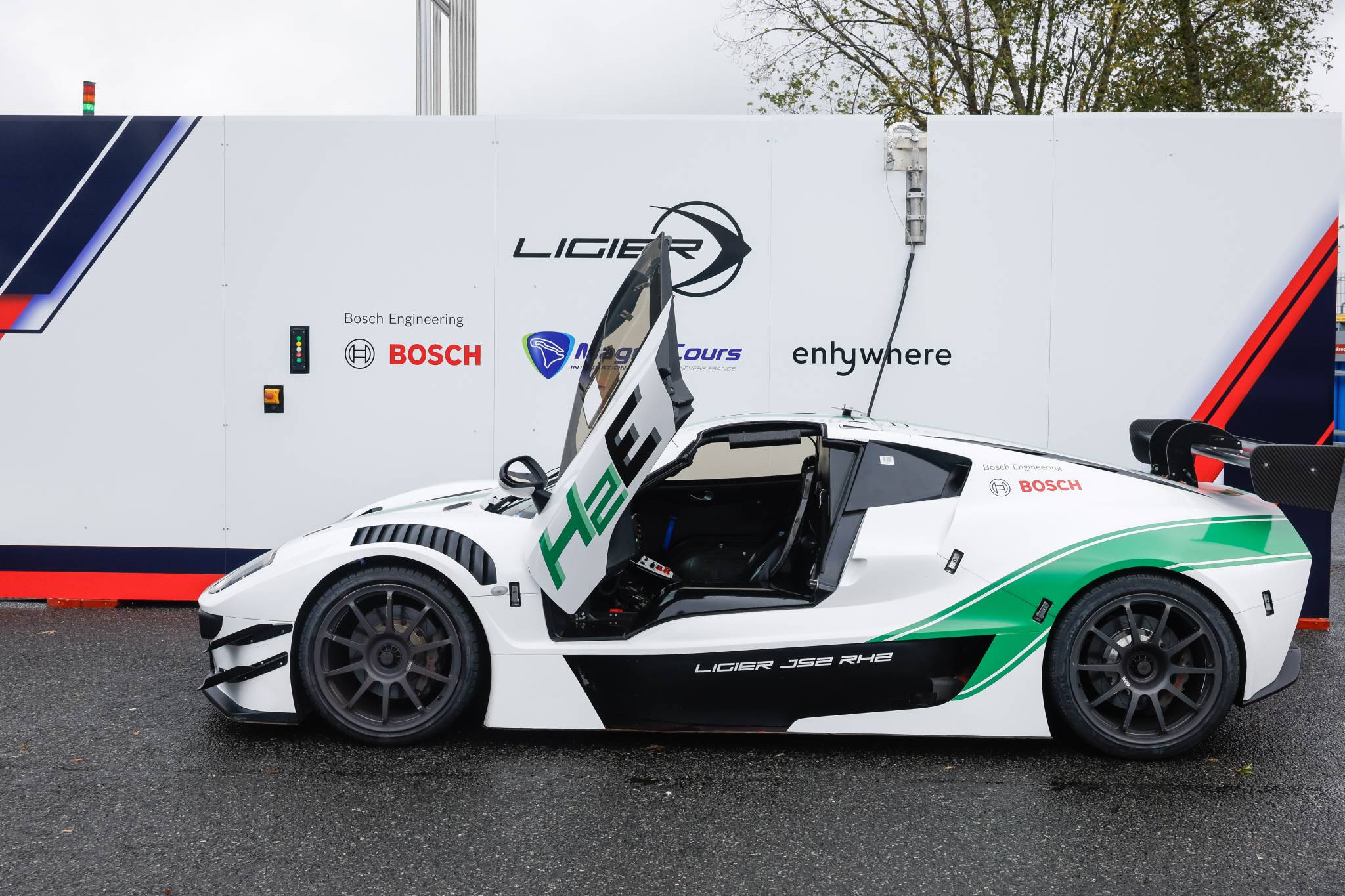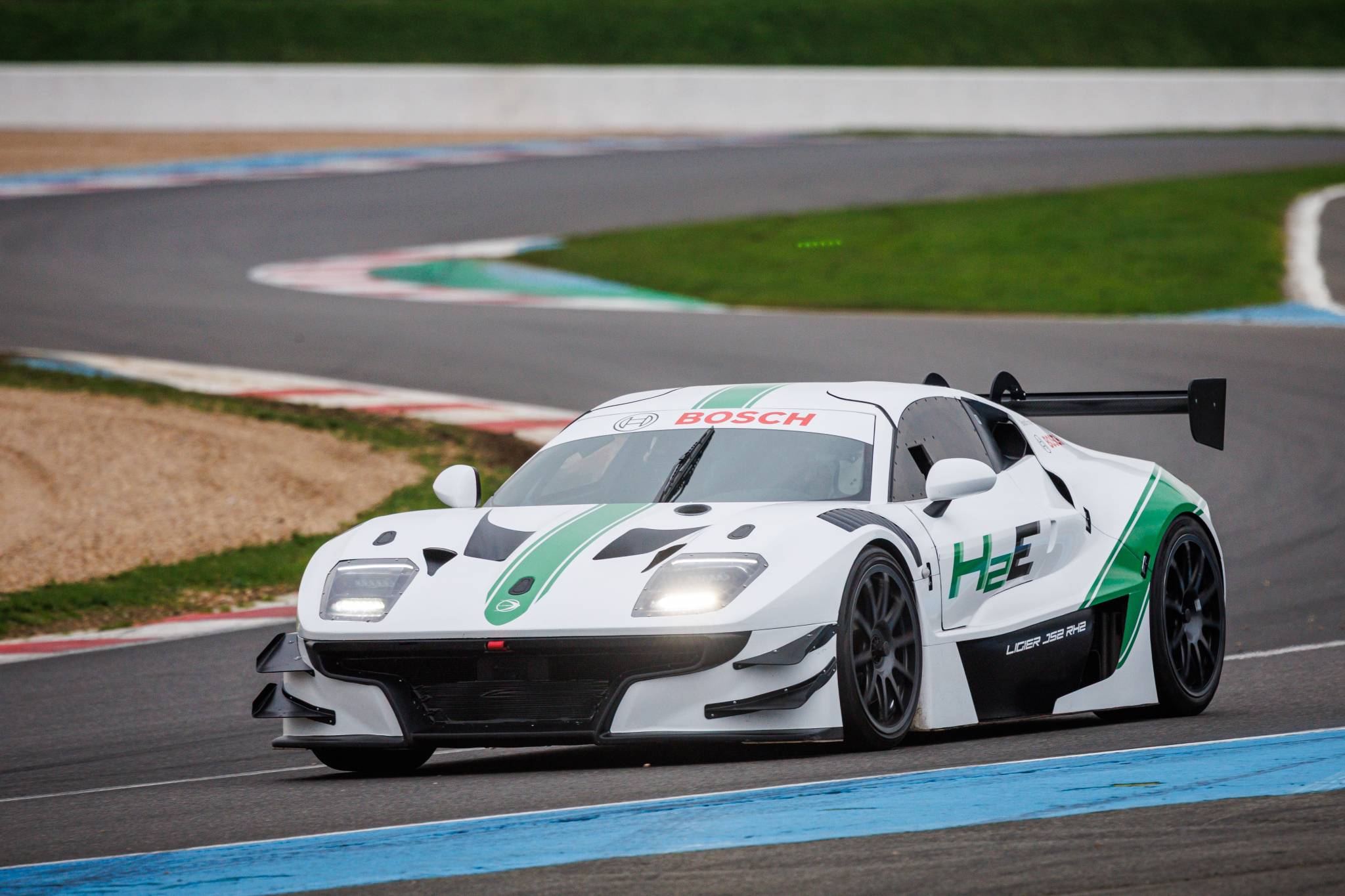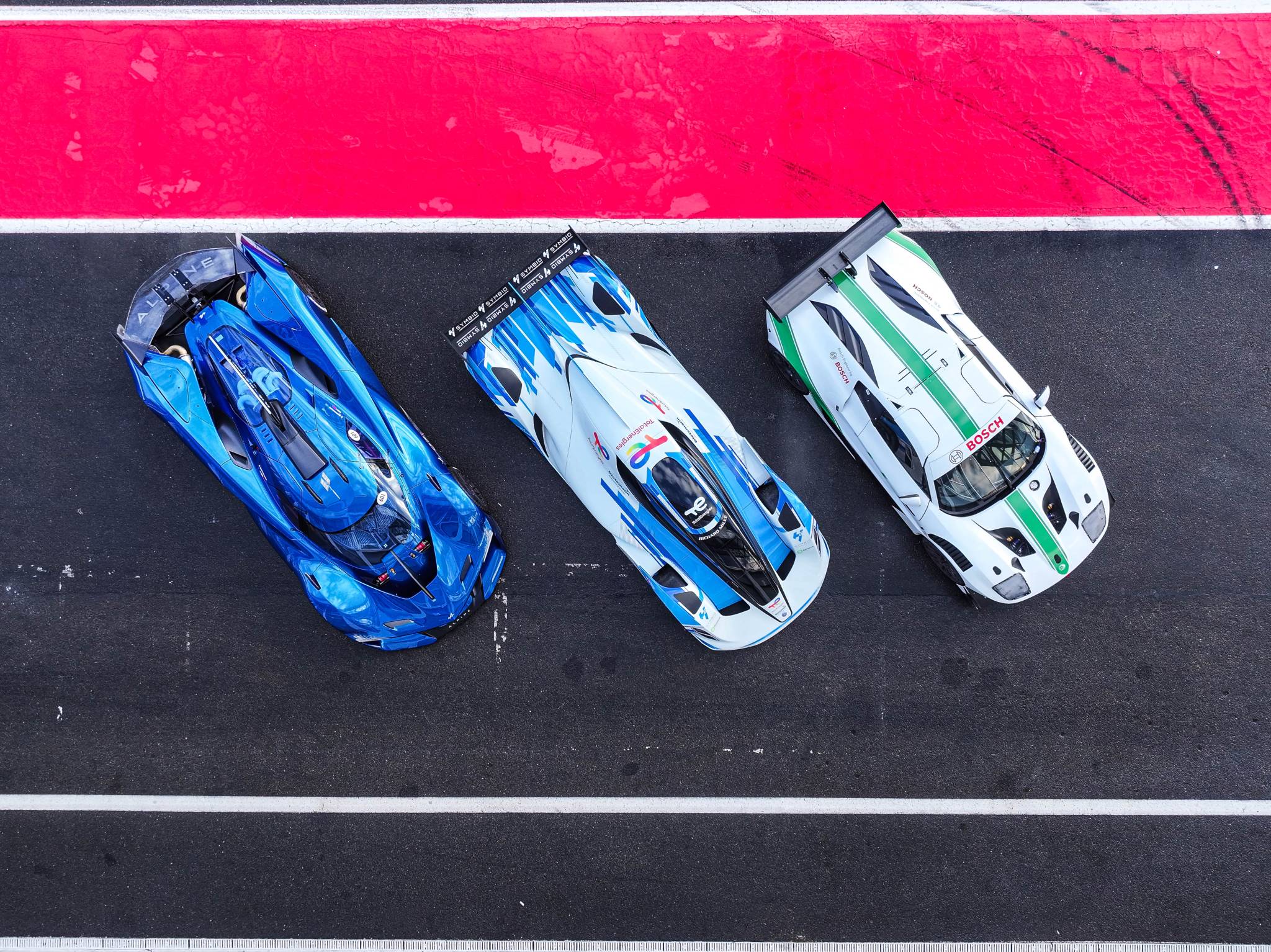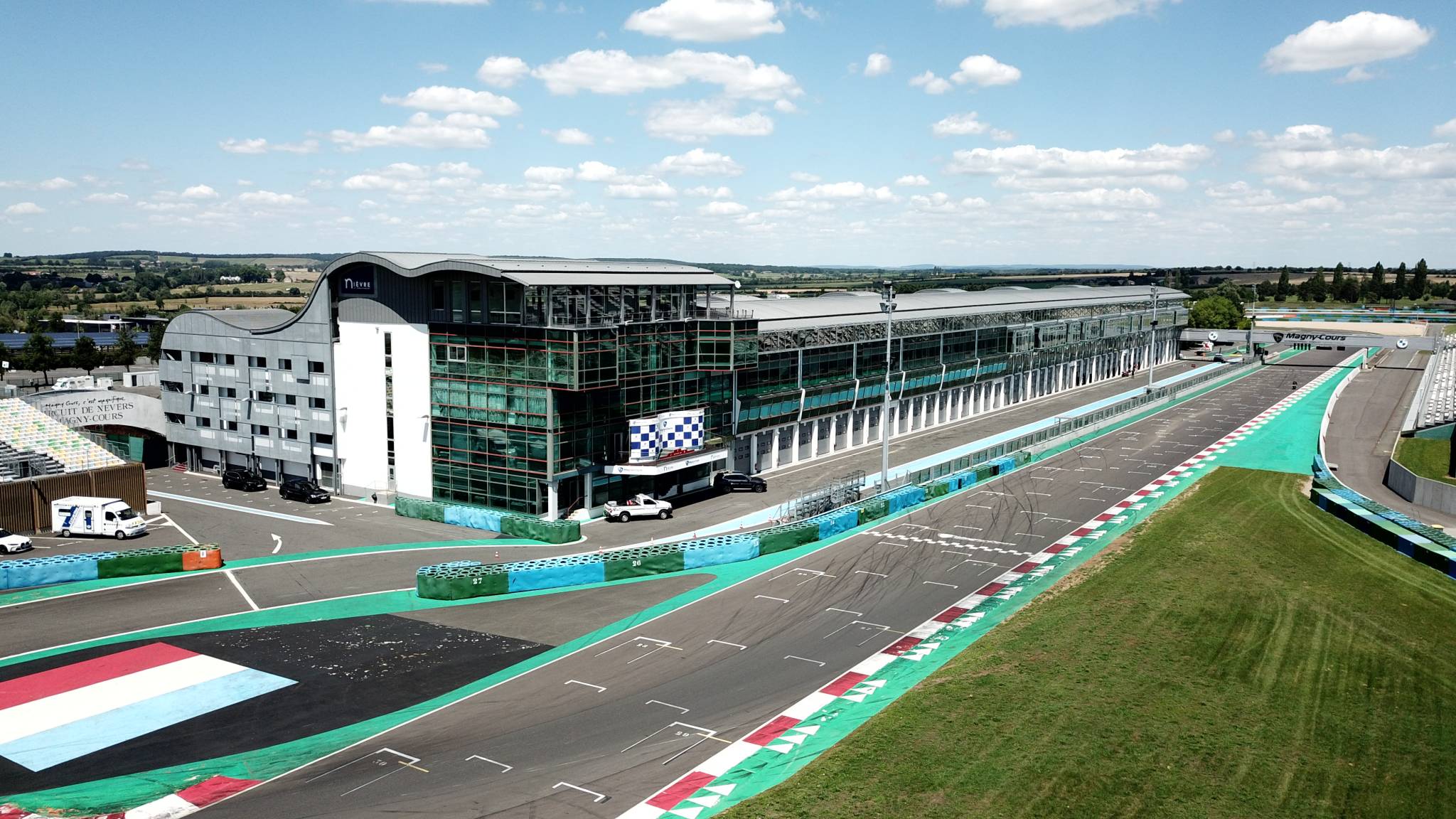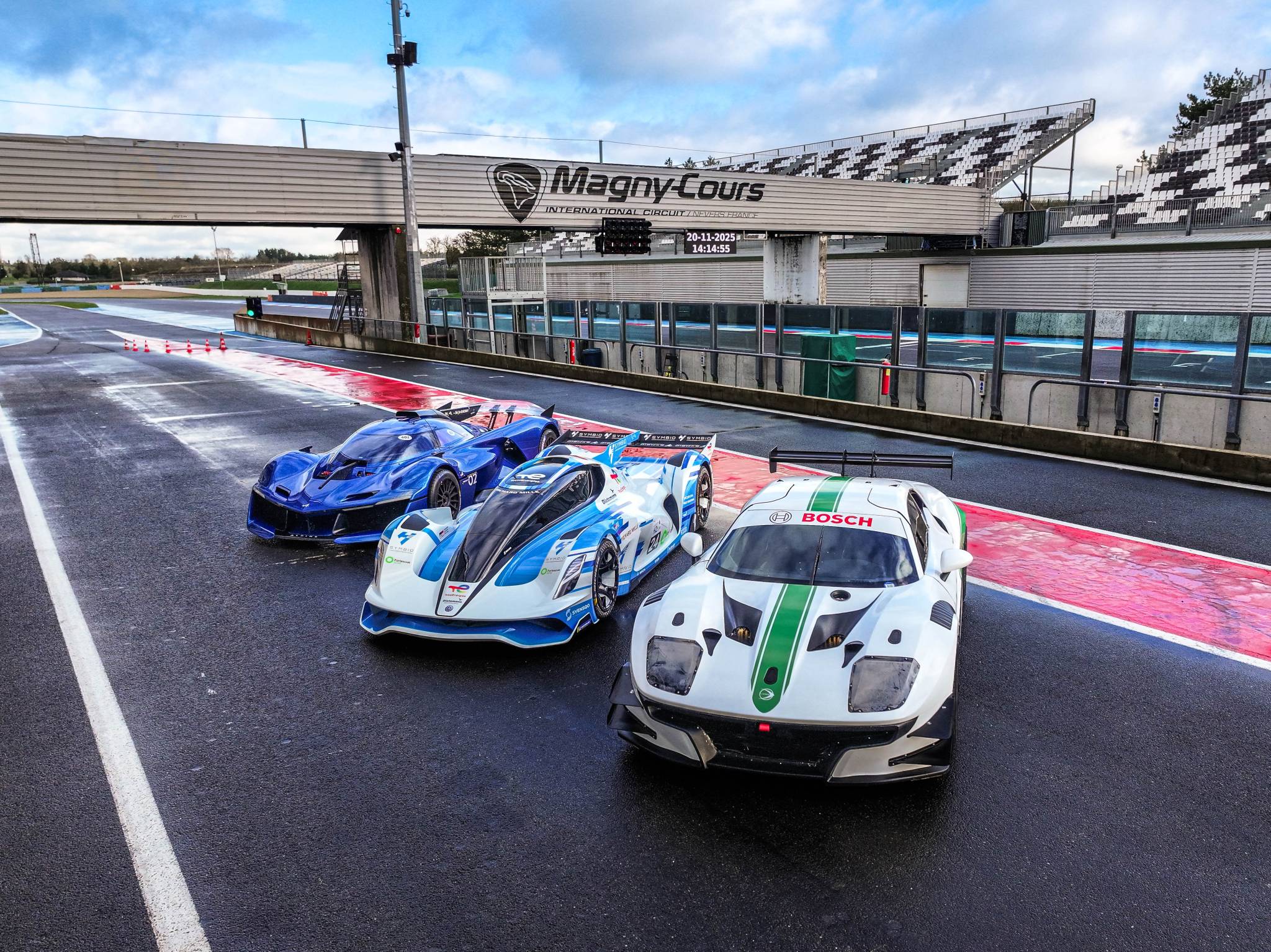
Ligier Automotive Strengthens Its Hydrogen Commitment in Magny-Cours.
Ligier Automotive, in collaboration with Bosch Engineering and the Circuit de Nevers Magny-Cours, hosted a major convention on Thursday, November 20, dedicated to hydrogen technologies applied to mobility and motorsport. The event brought together hydrogen experts, key industrial players, and institutional representatives from the Nièvre department and the region. The objective: to assess the state of hydrogen technologies, share concrete experience from the field, and present the initial foundations for a future Hydrogen Excellence Hub in Magny-Cours.
A Joint Commitment to the Energy Transition
From the opening remarks, the message was clear: hydrogen is more than an energy solution — it represents an industrial, technological, and territorial development opportunity. Motorsport, historically a driver of innovation, once again assumes a central role.
For Serge Saulnier, President of the Circuit de Nevers Magny-Cours, this momentum is both natural and essential. He recalled that for over a century, racetracks have contributed significantly to automotive progress — safety, performance, endurance, onboard technologies. Hydrogen marks the next chapter in this long tradition of innovation.
“We are committed to the energy transition and to the future of our sport and our infrastructure. With this approach, we return to the founding values of racetracks: being laboratories of innovation.”
The presence of the Automobile Club de l'Ouest (ACO), involved in a hydrogen program since 2018, with the MissionH24 H24EVO prototype, along with Alpine and its Alpenglow HY6, further reinforced this conviction: the motorsport ecosystem is evolving, and Magny-Cours intends to play a leading role.
Hydrogen: A Strategic Window of Opportunity
Experts offered a candid assessment of the hydrogen mobility market. While Europe is experiencing a period of uncertainty due to public investment fluctuations and consumer hesitation toward electric vehicles, other regions — particularly Asia — continue accelerating. This contrast creates an ideal context for anticipation and strategic positioning.
For Jacques Nicolet, President of Ligier Automotive, this moment must be seized: “There is a slight cooling around hydrogen, but we see it as an opportunity. Hydrogen is inevitable in the future, and Magny-Cours has all the strengths needed to become a center of excellence for this technology.”
The site indeed benefits from an exceptional combination of expertise: engine and mechanical companies, advanced engineering capabilities, testing infrastructure, engineering schools, a strong industrial network, and the presence of major motorsport and endurance racing players.
This combination provides ideal conditions to develop a complete hydrogen value chain — from prototype to industrial solutions.
The Ligier JS2 RH2: Proof Through Demonstration
At the heart of the discussions was the Ligier JS2 RH2, the hydrogen demonstrator jointly developed by Ligier Automotive and Bosch Engineering. This GT-style, two-seat vehicle, designed for demonstration and training, has already covered more than 7,000 km of testing — in heat, cold, rain, and snow — proving the maturity of its hydrogen system.
Ligier Automotive and Bosch Engineering teams presented the evolution of the project, from its fast-paced development (only seven months between project launch and the public demo at the 2023 24 Hours of Le Mans) to current work on the next generation of hydrogen engines.
For Bosch Engineering — represented by Lionel Martin, Head of H2 Products — hydrogen is a key strategic pillar: “Ecological neutrality is a necessity, and this is why hydrogen is one of the most important strategic topics at Bosch today.”
Guests also discovered the Enhywhere mobile refueling station, set up specifically for the event, before experiencing demo laps in the JS2 RH2. A highlight that impressed attendees, as Jacques Nicolet noted: “If you're not told the car is running on hydrogen, you cannot guess. The sensations are the same.”
Endurance Hydrogen Programs: A Shared Vision
The convention also highlighted the work carried out by the ACO and MissionH24, represented by Carole Capitaine, Head of Hydrogen Communications, and Nicolas Perez, H24Project Project Manager.
Carole Capitaine emphasized the collective and pioneering dimension of the ACO's initiative since 2018: “Endurance is a team sport. We are especially pleased to be here to share the experience we've gained on hydrogen.”
She also highlighted the role of the Hydrogen Village at the 24 Hours of Le Mans and the need to continue educating the public and the media about emerging technologies.
Seeing the Ligier JS2 RH2, the MissionH24 H24EVO, and the Alpine Alpenglow HY6* side by side illustrated the coherence of technological progress — and Ligier Automotive's direct involvement in several major hydrogen projects.
* Ligier Automotive contributed to the Alpenglow project particularly through the design of the hydrogen circuit, hardware development, hydrogen storage and cooling solutions, and integration of these components into the Ligier LMP3-based platform.
A Hydrogen Ecosystem in Sight for Magny-Cours
What lies ahead goes far beyond demonstrating a single technology. Magny-Cours aims to become a comprehensive hydrogen hub built around four pillars:
- A testing and development platform, supporting hydrogen gaseous and liquid technologies.
- Dedicated infrastructure, including temporary and permanent refueling stations.
- A strengthened industrial network, capable of welcoming new companies and supporting local actors.
- A training ecosystem, developed alongside engineering schools and technical centers.
Beyond motorsport applications, the ambition is broader. Hydrogen technologies developed and tested at Magny-Cours will also support other forms of decarbonized mobility, including local public transport, light logistics, regional freight, public services, and professional applications requiring autonomy and fast refueling.
A Reinforced Ligier x Bosch Partnership and New Projects Ahead
The convention also formalized new avenues for collaboration. The two partners are already working on liquid hydrogen storage systems, mandated by upcoming FIA regulations, while continuing development on gaseous hydrogen storage, suitable for many non-competition applications.
For Ligier Automotive, this industrial vision translates into concrete projects. As Richard Tur, COO of Ligier Automotive, explained: “This new topic can open an entire ecosystem around this technology in Magny-Cours. We will support companies and major manufacturers, create a testing environment, generate opportunities, and ultimately jobs. Reindustrialization requires innovation.”
The next step could be the development of a new generation of hydrogen track-day cars, branded Ligier or delivered as white-label platforms — designed for learning, testing, validation, and experimentation.
These vehicles would naturally fit within a hub dedicated to innovation, testing, and training.
What's Next for Ligier Automotive
As one of the driving force behind this initiative and fully committed to advancing the hydrogen sector, Ligier Automotive reaffirms its ambition to play a central role in the future of hydrogen technologies in motorsport and mobility. Together with Bosch Engineering, the company intends to accelerate the work underway and contribute actively to building a strong, innovative, and sustainable hydrogen ecosystem in Magny-Cours.
Two major events will carry this dynamic in the coming weeks: Belfort in early December, during Hydrogen Business for Climate, and Paris in late January, at the Hyvolution exhibition alongside Bosch. These will be key opportunities for Ligier Automotive to present its progress, engage with industry stakeholders, and continue advancing hydrogen for the future of motorsport and mobility.
To learn more about Bosch Engineering, CLICK HERE.
To discover the Circuit de Nevers Magny-Cours, CLICK HERE.
To discover the MissionH24 project, CLICK HERE.
Photo credit: DPPI
